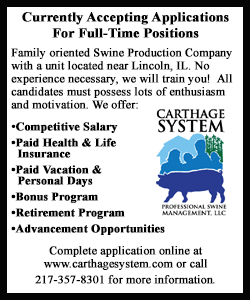|
Before a career break,
millennials need a money game plan
 Send a link to a friend
Send a link to a friend
 [August 19, 2016]
By Bobbi Rebell [August 19, 2016]
By Bobbi Rebell
NEW YORK (Reuters) - (The opinions
expressed here are those of the author, a columnist for Reuters.)
Until a month ago, Andrew Lampert was moving up the career ladder in
New York City as a pricing manager at an auto parts company.
Now, national parks are what Lampert, 28, and his girlfriend Elise
Murphy, 24, call home.
“The high cost of New York City can make it seem impossible to get
by without an income and money on top,” Lampert said. “I’m staying
in national parks for free, cooking on an open campfire – no rent,
no cable, no utilities."
Like many millennials, Lampert is fed up with traditional 9-to-5
jobs. A recent study by Wells Fargo found that fewer than half of
millennials (ages 22 to 35) are employed in their preferred career.
Given a choice, one in four would leave their current employer to
join a new organization or do something different, according to the
2016 Deloitte Millennial study.
But before you step off an established career track, you need to
review your finances carefully. Saving for retirement and making
sure you have healthcare coverage should be a top priority, experts
say.

The key, of course, is not to let an employment break derail your
longer-term financial plan. Millennial workplace expert Lindsey
Pollak points out that many millennials can now stay on their
parents’ health insurance until age 26. And because of federally
mandated healthcare, coverage is available with subsidies, if your
income should drop.
Lampert is on a Cobra health-benefits plan from his previous
employer, paying a monthly premium of $500, up from $125 in his
workplace plan. He plans to get catastrophic insurance when that
runs out.
It is equally important to also stay on track with other financial
priorities, like retirement planning.
A Wells Fargo study found that 85 percent of millennials believe
saving for retirement is an important part of becoming a financial
adult, but fewer than half (45 percent) have an established routine.
Lampert was saving in his company’s 401(k) retirement plan and has
moved his savings to an Individual 401(k) plan.
The decision to stop working for a while is a personal one.
[to top of second column] |

People crowd 42nd Street near Times Square to take pictures as the
sun sets over Manhattan in New York City, U.S., July 11, 2016.
REUTERS/Mark Kauzlarich

“If you intend to return to the workforce after the break, it's a
good idea to maintain your professional contacts, and be prepared to
have a succinct, positive answer when future employers ask why and
how you took the break,” Pollak notes.
Job changes and career breaks are becoming more of the norm, though. The average
millennial will change jobs an estimated four times in the first decade of work
after college, according to LinkedIn.
One reason why it's so hard for more millennials to pursue truly fulfilling
careers is that they find themselves focused on financial realities, such as
paying back record amounts of student debt.
As a result, they do not have the opportunity to consider passion for their work
the way members of previous generations have in their early career years.
“The cold, harsh reality of the economy is really affecting their lives,” Pollak
says. “In any career decision, finances are at the top of the list.”
In contrast, previous generations had more leeway to pursue their passions. That
explains the popularity of the classic book, “What Color is Your Parachute” by
Richard Bolles, Pollak says.
As for Lampert, his journey is technically open-ended, but he expects to travel
for about six months to a year, and then settle down in a more affordable part
of the United States.
Along the way, he plans to look for intermittent work as a consultant to have
some income and stay in touch with business contacts.
"The plan has been to visit both points of interest and potential new homes to
get a sense of the different lifestyles of different places,” Lampert says.
[© 2016 Thomson Reuters. All rights
reserved.] Copyright 2016 Reuters. All rights reserved. This material may not be published,
broadcast, rewritten or redistributed.
 |